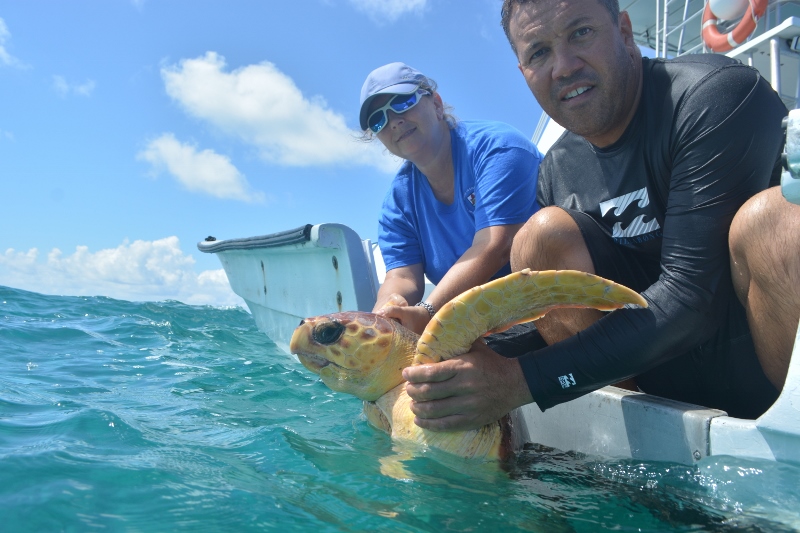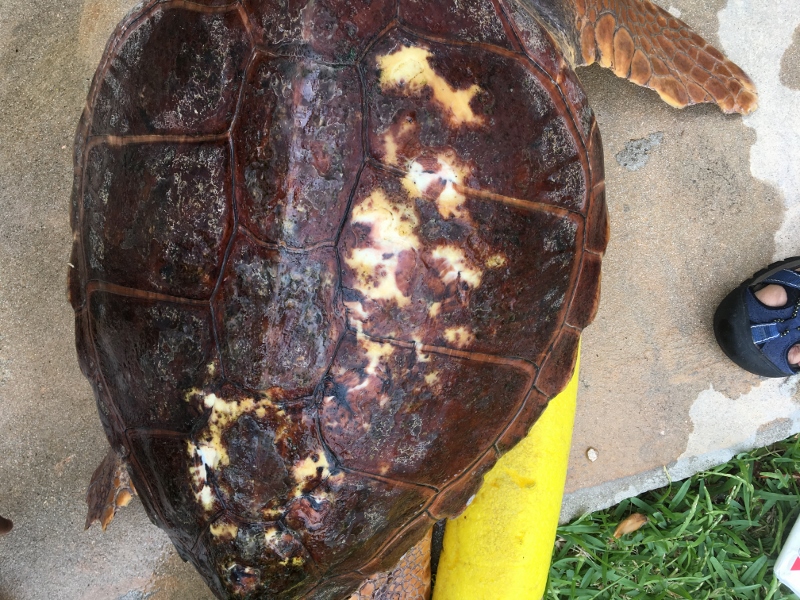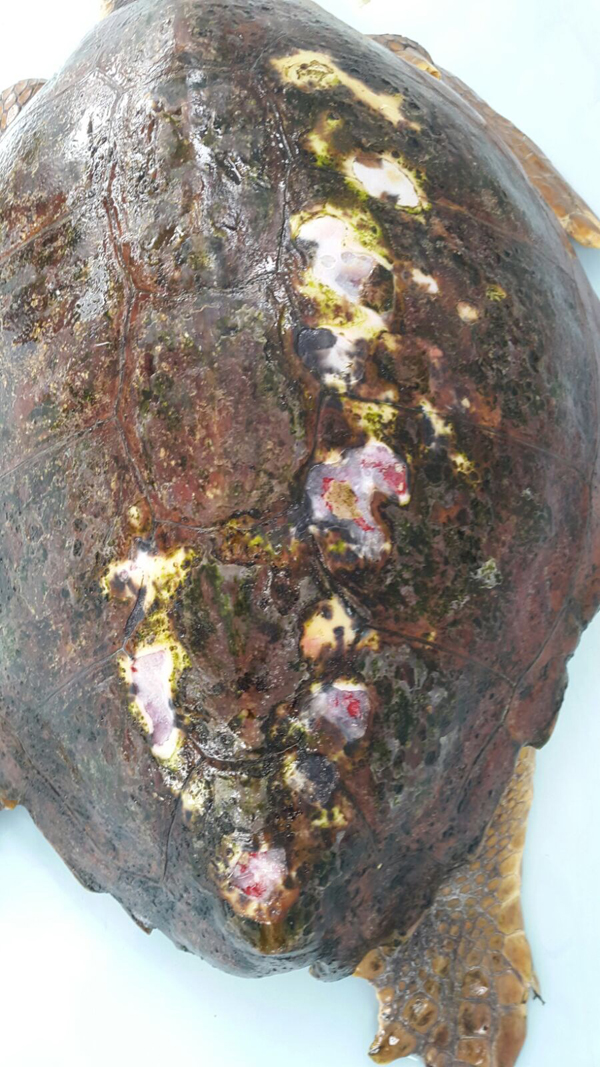Recent News
Educational treat at Trunk IslandThursday, June 14, 2018
Warwick Academy’s Eco Club students Luke Foster, Grace Flannery, Katya Williamson, Jibril Taylor, Isabel Hughes, Roxy Crockwell-Laurent and Rip Crockwell-Laurent), enjoyed a joyful and enlightening trip to Trunk Island, Harrington Sound.
KBB celebrates World Oceans Day
Friday, June 08, 2018
In celebration of World Oceans Day, Keep Bermuda Beautiful (KBB) has lined up several events for June 7 — 9.
Prevent plastic pollution
Thursday, June 07, 2018
Today, June 8th, is World Oceans Day, and the theme for this year is the prevention of plastic pollution to encourage healthy oceans. On World Oceans Day, people around our blue planet celebrate and honour the ocean, which connects us all.
Ministry On Sightings Of Hammerhead Shark
Wednesday, June 06, 2018
Following the most recent shark sighting at Shelly Bay, the Ministry said it is likely the same one as seen over the past few months and said that while there is no need for alarm, “under no circumstances should anyone attempt to approach or handle the shark in any way.”
Expert: hammerhead no threat to humans
Tuesday, June 05, 2018
A six-foot hammerhead shark spotted cruising close to the shore is unlikely to be a threat to humans, marine experts said yesterday.
About
GovernanceAbout Us
Newsletter
Latest News
Gift & Bookstore
Contact
General Inquiries
info@bzs.bm
Latest News
All the latest updates and news from the Bermuda Aquarium, Museum, and Zoo, one of Bermuda's leading visitor attractions!
A loggerhead turtle named ‘Chad’ — who was found entangled in cargo netting last October — was released into the waters off our coast last week after a lengthy rehabilitation at Bermuda Aquarium Museum and Zoo [BAMZ].
“Divers from Blue Water Divers found Chad floating in Ely’s Harbour in October of last year. Chad was in considerable distress because he was tightly entangled in a massive amount of cargo netting,” the Department of Environment and Natural Resources said.
“The Blue Water team removed the netting but discovered that Chad could not dive below the surface so they brought Chad to BAMZ.

“Dr. Ian Walker, Principal Curator at BAMZ, examined the loggerhead. There were significant grooves in the marginal scutes of the carapace [grooves in edge of top shell] which would indicate that the turtle was entangled for a long time. It took about 10 days for Chad to start diving to the bottom of his enclosure.
“One theory for the buoyancy problem is that turtles hyperinflate their lungs as a survival mechanism. Since they are air breathers, making themselves positively buoyant would assist them staying at the surface to breathe in spite of the weight of the net. Another theory is that this is how their bodies respond to an infection.
“There were numerous locations where the shell was ulcerated and there was a concern the turtle was septic and therefore would not have a very good prognosis. Dr. Walker and the team knew Chad needed food, antibiotics, a clean environment and time to recover. The aquarists kept Chad well fed and clean. Happily, he began eating an average of 1.5lbs of herring a day shortly after his arrival.

“The healing process took quite a while; turtles can be quite resilient but they take their time getting better. Winter water temperatures slowed things down but as the water started to warm up, the healing moved along nicely. The loggerhead was examined monthly to assess the ulcerated shell. There were several spots that needed new bone growth.”
Roma Hayward, Animal Care and Quarantine Officer, was responsible for debriding the wounds monthly to assist with the healing process.
“Chad survived a terrible ordeal and has healed well,” she said. “He will have a microchip and flipper tags in the event he shows up somewhere else. He will be able to be identified and it signifies that he was captured before.”

The Department added, “Of the seven turtles species around the world, five have been found locally with the most common being Greens and Hawksbills followed by Loggerheads. Bermuda normally gets post-hatchlings [younger than a year] in the winter and spring that get washed in with sargassum weed but Chad is unusual in that he is much older.
“Unlike the other turtles found in the Atlantic the loggerhead pelagic [open ocean] stage is quite protracted as these animals spend many years drifting with the currents and sargassum. Chad is expected to eventually settle in the Eastern Atlantic to start the next stage of his life.
The Department also noted that Chad may not, in fact, be male, as his caregivers are unsure of the gender at this time since Chad is in the intermediate stage of development [neither juvenile nor adult]. These turtles do not develop any sexual dimorphic features until adulthood.


